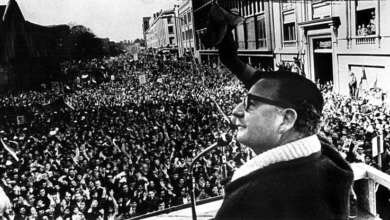Thousands of people poured into the streets of Managua, Nicaragua, to celebrate the electoral victory of the Sandinista National Liberation Front (FSLN). On Nov. 6, Daniel Ortega won the presidential elections with 62.75 percent of the votes while his main opponent, Fabio Gadea, from the Liberal Independent Party, received only 30.96 percent.
In addition, the FSLN won a landslide victory in the elections for deputies to the National Assembly and reached a majority for legislative representation to the Central American Parliament.
Opponents of Ortega accused the Sandinistas of voter fraud. However, international observers confirmed that there were no irregularities that could have affected the outcome of the elections.
On the contrary, according to Prensa Latina, the U.S. Embassy in Nicaragua has been participating together with the two main opposition parties, the Independent Liberal Party and the Sandinista Renewal Movement, in a destabilization plan. Among the main objectives of this plan was the launching of a post-election campaign to discredit the FSLN if it was victorious. This plan was financed by U.S. organizations such as the National Endowment for Democracy, the Republican Institute and the Democratic Institute. These institutions have been sending $30 million to Nicaragua each year to subsidize opposition to the Sandinistas.
Commandant Tomas Borge characterized as cynical the U.S. attempt to discredit the national election held on Nov. 6.
Ortega’s huge victory is the result of the social and economic reforms that have been taking place in Nicaragua since his first election in 2006. With Cuban solidarity and financial support from Venezuela, the FSLN has implemented a series of programs to improve health and education for the poor. Ortega’s administration has also provided loans for small businesses and poor farmers.
Nicaragua is the second poorest country in the Western Hemisphere. Its economy grew 4.5 percent in 2010 and is expected to increase 4 percent in 2011. Since Ortega became president in 2006, some economic improvements have taken place. According to the World Bank, 65.7 percent of the population lived below the poverty line in 2005; now the number has decreased to 57 percent.
The re-election of Ortega in Nicaragua has a significant meaning for Latin America, especially for the Bolivarian Alliance for the Americas (ALBA) member countries, which are a consolidating force to deter all forms of imperialist interventionism in the region. Nicaragua is now the only ALBA member in Central America, since Honduras withdrew from it after the military coup in 2009.






